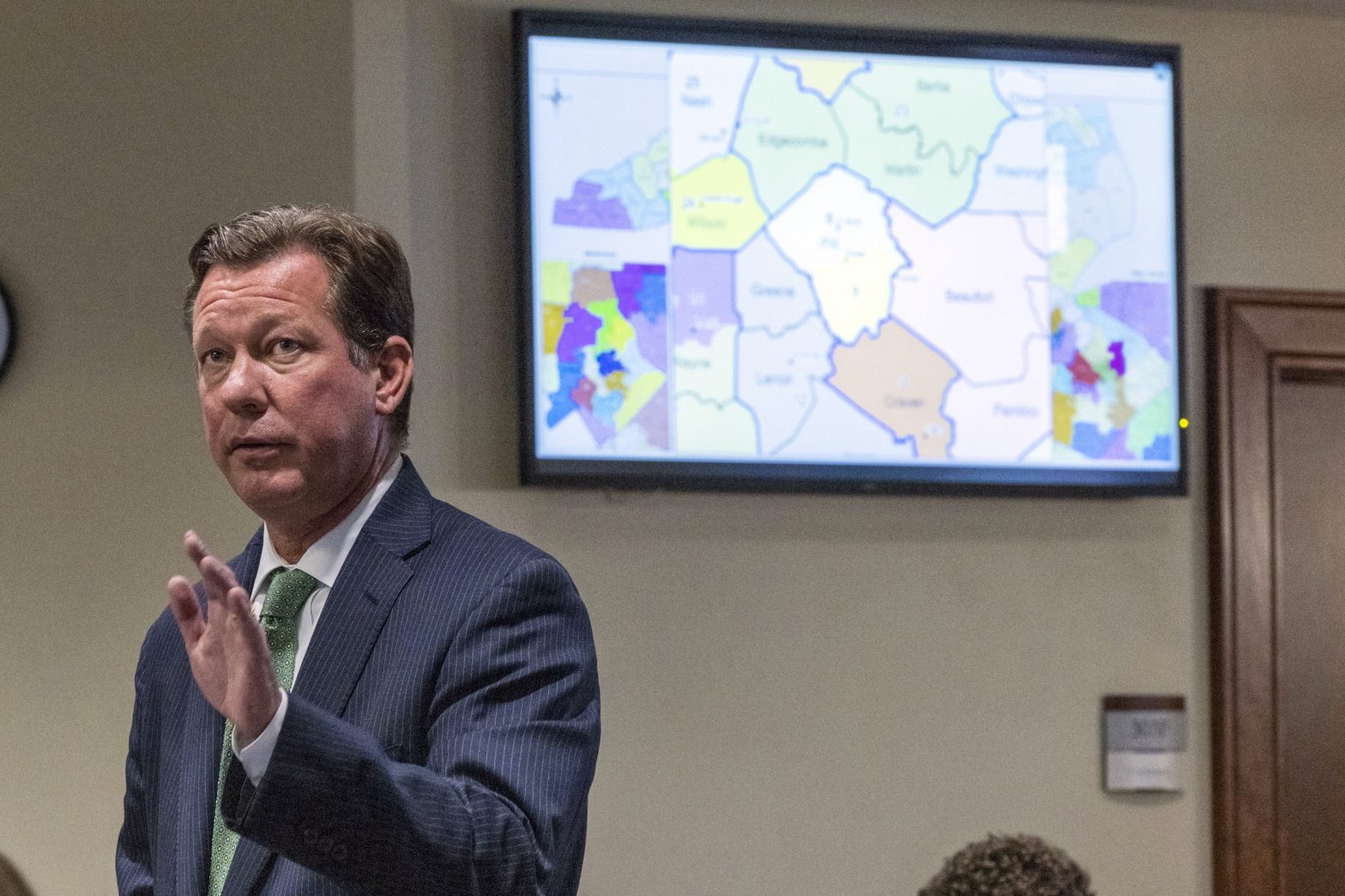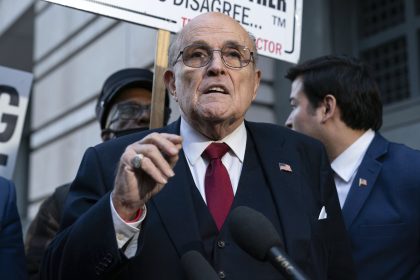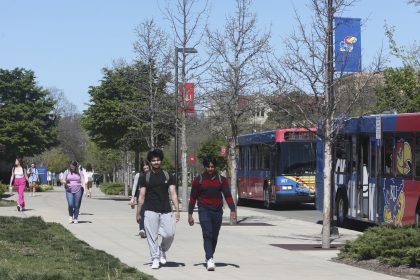NC Supreme Court Overturns Own Gerrymander Ruling

RALEIGH, N.C. — Five months after gaining their first majority in nearly a decade, Republicans on the North Carolina Supreme Court overturned the court’s earlier ruling in a closely watched district map case, holding there is “no judicially manageable standard by which to adjudicate partisan gerrymandering claims.”
The 146-page opinion released Friday appears to open the door for the Legislature’s Republican majority to draw district lines that will perpetuate its power in the statehouse and could help Republicans build on their slim majority in Congress.
Writing for the majority, Republican Chief Justice Paul Newby said, “this case is not about partisan politics but rather about realigning the proper roles of the judicial and legislative branches.”
Courts, he wrote, “are not intended to meddle in policy matters.”
“Today we begin to correct course, returning the judiciary to its designated lane,” Newby said.
According to the majority, the North Carolina Constitution simply does not address partisan gerrymandering and it’s not within the court’s authority to amend it.
“The constitution does not require or permit a standard known only to four justices,” Newby said.
Both of the court’s two Democrats, Justices Michael Morgan and Anita Earls, dissented from the ruling.
“Unchecked partisan gerrymandering allows the controlling party of the General Assembly to draw legislative redistricting plans in a way that dilutes the voting power of voters in the disfavored party,” Earls wrote in the dissent.
“In so doing, those who hold political power can guarantee that they remain in office for decades, making them impervious to the popular will. … This is not how democracy should function,” the one-time civil rights attorney said.
Morgan joined in her dissent.
The case, Harper v. Hall, centered on a fringe assertion called the “independent state legislature theory.”
The theory holds that under the U.S. Constitution, state legislatures are imbued with the power to determine how federal elections are conducted without any checks or balances from state constitutions or state courts.
North Carolina’s high court, under a Democratic majority, had previously ruled against a congressional map drawn by Republican state lawmakers for violating the state’s constitution.
Republican lawmakers appealed to the U.S. Supreme Court, asking it both to overturn the state court ruling and affirm the independent state legislature theory in the process.
The high court heard oral arguments in the case in December, but has yet to rule on the matter.
If the U.S. Supreme Court decides the independent state legislature theory is valid — effectively striking down state courts’ ability to intervene in election cases — it would not only effectively affirm Friday’s ruling in North Carolina but would have sweeping impacts on efforts to advance election freedoms and curb electoral gerrymandering nationwide.
In a separate ruling in North Carolina, the Republican majority on the North Carolina Supreme Court upheld the state’s voter ID law, which had also been tossed when Democrats held the majority of the court.
Lawmakers in North Carolina have been trying to impose a requirement that a photo ID be presented at the polls, but the effort has been stymied by litigation at every turn.
Last year, in their final weeks in the majority, the court’s Democratic justices allowed a 2021 ruling by a lower court, voiding the photo ID law, to stand.
The lower court said the law violated the equal protection clause of the state constitution because it was tainted by racial bias and was intended to help Republicans maintain control of the state General Assembly.
Friday’s ruling won’t automatically impose new voter ID standards at the polls, however, as the law is still being challenged by two other lawsuits.
Dan can be reached at [email protected] and @DanMcCue
























